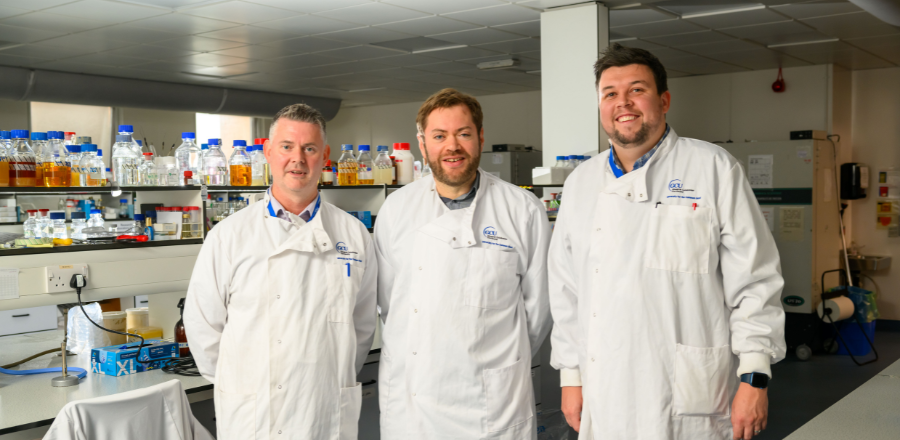Microbiologists secure almost £400,000 in funding for ground-breaking research

Glasgow Caledonian University’s microbiology team have secured almost £400,000 in funding from the UK Research and Innovation National Biofilms Innovation Centre (NBIC) and industrial partners to support ground-breaking research on microbial biofilms.
This funding for the Department of Biological and Biomedical Sciences and the Safeguarding Health through Infection Prevention (SHIP) Research Group will help tackle real-world challenges by bringing together academic experts and industry collaborators.
The NBIC, established in 2017 and partnered with Glasgow Caledonian since 2020, is a UK-wide centre funded by the Biotechnology and Biological Sciences Research Council (BBSRC) and Innovate UK. It supports research into microbial biofilms.
Biofilms are communities of one or more types of microorganisms which cause a slimy build-up of bacteria and fungi that can grow on many different surfaces, such as medical devices (e.g. dentures, bladder catheters and prosthetic joints), and cause infection. Infection from biofilms are difficult to diagnose and treat. Left untreated, they can lead to life-threatening infections and sepsis.
The funding will support two PhD studentships and two postdoctoral researchers at Glasgow Caledonian, funded across three separate grants. This work is led by microbiologists in the School of Health and Life Sciences - Professor Gordon Ramage, Dr William Johnston, Dr Ryan Kean and Dr John Butcher.
The projects cover a broad range of biofilm-related conditions, including denture stomatitis, chronic wound infections and bacterial vaginosis. Successful projects include:
- Two PhD students Olivia Sealy and Jamie Smith are investigating chronic wound infections and bacterial vaginosis, led by Professor Ramage and Dr Kean. This work is partnering with NexaBiome, a Glasgow-based biotech company focusing on world-class bacteriophage isolation, and Glasgow Caledonian investment in research (£244k).
- Proof of Concept Award 1: Denture protection using Remora Technology (£104k), led by Dr Johnston and Professor Ramage. This work is in collaboration with Penrhos Bio and pro3dure medical, leading experts in the development of novel biofilm inhibitor technology and 3D printing of dental resins.
- Proof of Concept Award 2: Creating engineered peptide immunotherapies to target Pseudomonas aeruginosa biofilms (£51k), led by Dr Kean, Dr Butcher and Dr Johnston. This work is in partnership with CC Bio, a synthetic biology London-based biotech company.
Professor Ramage, who is co-lead of the SHIP Research Group in the Research Centre for Health (ReaCH), said: “This commercially focused funding will drive cutting-edge research and help develop new solutions for biofilm-related problems in healthcare and industry, which aligns with meeting the Sustainable Development Goals (SDGs) via the UN goals for Healthy Lives.”
Dr Gordon Smith, NexaBiome Principal Scientist, said: “NexaBiome (and Fixed Phage) have a track record of sponsoring PhD projects with local universities to support early years career researchers and foster links with academic partners/ institutions that can provide insight and useful ideas for us, as well as taking time to do high quality research that we don’t have the time and resource to do.
“When the opportunity for this partnership came around, I knew from personal experience that Professor Ramage and Dr Kean had a reputation for successful delivery of commercially sponsored projects that need to add value to the commercial entity. I am confident this partnership will be long-lasting and productive for both parties.”
Photo shows Professor Gordon Ramage, NexaBiome Principal Scientist Dr Gordon Smith and Dr Ryan Kean in the bio labs at Glasgow Caledonian.
